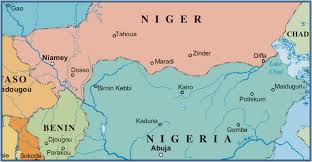Still on Hausa and the International Mother Tongue Day
By
Muhsin Ibrahim
muhsin2008@gmail.com
As
much as we love English, we should embrace our indigenous languages. Language
is more than a means for communication; it carries our identity. Ngugi wa
Thinago rightly argues that our minds need to be decolonized by embracing our
African languages and cherishing our beautiful cultures. Otherwise, one is
still living in the bondage of colonialism, and that means living under mental,
cultural, linguistic, etc. subjugation.
According
to my respected teacher, speaking Hausa is not enough for Hausa people to brag
that their language is not endangered. A language survives the onslaught of other
more powerful languages when it is well documented. As I said yesterday,
Kiswahili is ahead of Hausa, not because it has more speakers but because it’s
well-documented, among other concerted efforts of its speakers in East Africa.
Much unlike it, the number of writers in Hausa is drastically decreasing.
More
telling is the press (print) in the Hausa language. Most of us patronize
English language newspapers at the expense of indigenous language ones. Consequently,
many have either closed shop or remain as appendages of the primary news media,
which is also barely updated. The few active ones often resort to
tabloidization as a strategy for survival. “The reporting style of tabloids
emphasizes sensationalism, that is, the use of photographs and dramatic
headlines” (Mpofu 2021:49). These media do precisely just that today.
To
some people, whatever happens to the Hausa language is none of their business.
To others like me, it is an issue of concern. I studied in India and do now in
Germany, two non-English speaking countries that are way ahead of Nigeria.
Thanks to their indigenous languages, schoolchildren don’t have to struggle
with learning any foreign language and the concepts being taught. Needless to
say, this eases their task and enable them to utilize the potentials of their
citizens.
No
one needs to remind me of the prestigious position of English in our world
today. It’s essential, as I argued over and again previously. However, it’s not
the MOST crucial language there is. Our mother tongues are, for they make us
who we are. No proficiency in the English language can make you English. Learn
it (English) or any other language very well but don’t throw away your mother
tongue. You can’t have what is not yours or be who you are not.
Reference
Mpofu, P. (2021). “The politics of
language and the underdevelopment of African language press in Zimbabwe” in
Salawu, A. (Ed.). African Language Media:
Development, Economics and Management. Pp. 35-52. London: Routledge.





0 Comments
ENGLISH: You are warmly invited to share your comments or ask questions regarding this post or related topics of interest. Your feedback serves as evidence of your appreciation for our hard work and ongoing efforts to sustain this extensive and informative blog. We value your input and engagement.
HAUSA: Kuna iya rubuto mana tsokaci ko tambayoyi a ƙasa. Tsokacinku game da abubuwan da muke ɗorawa shi zai tabbatar mana cewa mutane suna amfana da wannan ƙoƙari da muke yi na tattaro muku ɗimbin ilimummuka a wannan kafar intanet.